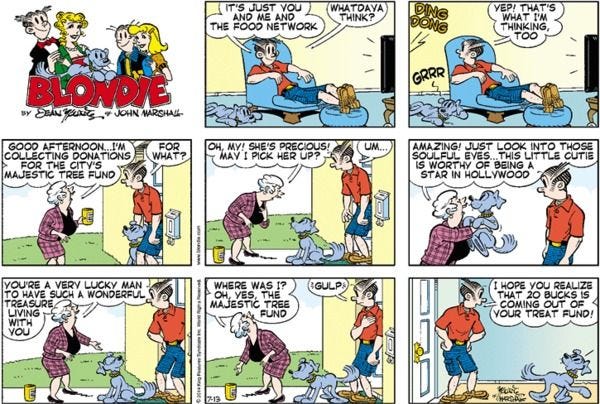I paid $300 to have a good night sleep, and all I got was a room
Effective complaints are win-win on value
I spent the night of early October 2016 at a Hotel in Boston. It was a non refundable reservation I paid for in advance at Expedia. With taxes, it came to $300.
Wouldn’t you agree with me that that amount should have bought me a good night sleep?
But that is not what I got. Upon check in, Lucas (name changed) at the front desk assured me that the room was by the elevators, but I would be fine. The elevators would be no problem.
Since I was in town only one night for business meetings, I did not get into the room until late. Which is when I was there long enough to figure out the noise from the elevator shaft was painfully audible.
So I called the front desk and Rachel (name changed) promptly offered to move me to a room away from the elevators. That was room #515.
It was late, I was tired, and did not have the presence of asking where exactly the room was—all I wanted was a night’s sleep.
On Value in Culture is a reader-supported guide to framing in narrative, language, books, value & culture. Both free and paid subscriptions are available. If you want to support my work, the best way is by paid subscription.
Rachel called as soon as I got into the room to check if it was fine. Well, I had just gotten in and in the few seconds we were on the phone, it was fine.
But at around midnight and for entire duration, it was like being smack in the middle of a battlefront. Explosions went off at regular intervals. Rendering every attempt to go back to sleep weaker.
I finally literally fainted into sleep (had traveled 5 hours by train that day.) Which is when the garbage trucks started. It was jarring.
I’m used to being in NYC overnight. They must have figured out how to insulate windows from street traffic, because even in less expensive hotels it’s not that bad.
In all, I slept probably one hour with a long day of meetings on the go ahead of me.
When I checked out I shared my experience with a young man at the front desk (don’t remember the name—I was exhausted.) He said they were shooting a movie and that the hotel didn’t know the exact schedule.
Nobody must have been around at night from the Hotel staff because—had you been there—you would have said for sure WWIII has started. When I said I was a returning customer (stayed at the property for three nights the previous year) and not happy, he said he was sorry.
To his credit he came by to offer me a cup of coffee. But let me ask you something, Hannah (name changed), would you personally as a customer feel that a cup of coffee is a good remedy for getting no sleep? Is that a fair trade in your eyes?
As other guests have remarked, there’s noise from street traffic in the early morning. Room #515 was a bit older than the original room I had booked, and a bit dirty here and there.
Again, all I wanted was a good night sleep, so old-ish and less than primp weren’t my focus. Though one might expect to buy something more in line with the front lobby for $300. I was fine with trading the room I got for a good night’s sleep.
However, the room I got was a ‘so-and-so,’ and very noisy.
I encourage you to read my note in the spirit in which it was written. Which is not to complain, but to extend an offer to the Hotel to help repair for the poor experience it delivered.
I do know the Hotel can do much better. My three nights during the previous stay were without an incident. I had a lovely piece of salmon at the Hotel’s Restaurant, and enjoyed the courtesy of the staff.
The service I received this time was not in line with the Hotel’s presentation and pricing. Now that we’re clear on the distinction. I politely request an appropriate response, one that will help the Hotel make better promises in the future.
I sent this note to the Hotel right after my stay. I wanted to give them as much detail as possible, without embellishing or opinionating. Though I did insert the bit about cleanliness—even a lovely room loses appeal when you find hair in the tub.
To their credit, the staff at the Hotel acknowledged the feedback and responded appropriately a few days later. I credit the response to the difference in narrative between making a complaint and making a case for better service.
When you make the business case in terms of value—to the organization as well as to you (or any customer)—you help everyone. And nobody gets fired or frustrated, which entrenches us in our position(s).
The Hotel reviewed my case, and granted a refund with a coupon to stay over a weekend. They gave me confidence in their ability to be hospitable in the future.
I’d like to call what I did feedback. However, we know the reality is that we will take the time to mobilize only when something goes wrong.
There are plenty of ways organizations can improve their service. Many companies have created phone hot lines and communication outposts on Twitter (an old list, harking back to a time when ‘The Network Formerly Know As’ was more useful.)
But as customers, we can also learn to do a better job at explaining what went wrong and what a company can do to improve. If you want a problem solved, you need to be part of the solution, rather than tsk-tsk with indignation.
Contrast the characteristics of—
Effective (and valuable) complaints
timing—don’t wait, when something goes wrong, address it as close to the time it happens as possible, so it can be addressed with the people responsible to retrace what happened.
appropriate medium—if you’re dealing with an online company, use email or contact forms, don’t use the phone. They staff that way.
laser focus—while it’s good to document all that went wrong, give the company representative a way to address your issue by pin pointing it for them. Be specific.
best case scenario—what would it take to make things good again? Tell them.
hard on issue, soft on people—partner with the person who’s on the receiving end of your email, call, or in person report. They may not have the authority to make decisions, but they will be able to help you make the case.
With the pitfalls
According to consumer advocate Christopher Elliott, reporting from the Society of Consumer Affairs Professionals’ annual conference, they are:
being a squeaky wheel—defined as griping too quickly and too often. Crying wolf anyone?
claiming special circumstances—who doesn’t like to feel special? But is your special-ness related to being a bad traveler or a bad customer experience?
name dropping—it will get you attention in the short term. However, it will make you enemies quickly if you have not tried to solve the issue with the people on the front lines first.
listing a litany of things that went wrong—it’s better to keep your conversation to the issue at hand to give a company one thing to address.
threatening to leave as customer—I’ve used this only once, when I was ready and willing to make good on it. It doesn’t get you a resolution, often only a shrug. The person in front of you may not get measured on attrition.
It feels good to get attention. But there are tradeoffs.
Smart organizations find ways to use customer feedback to improve their processes. They provide a direct line to solve issues when and if they crop up. They capture value for the business, and for the organization’s culture.
Many organizations are still wrestling with misaligned systems and processes. When we help solve problems, we help our case and the company. We reinforce how we appreciate new practices, which support and motivate better convergence.
I’m all for writing a recommendation note or making a positive call when a business provided good service. How about you? Shouldn’t we take more time to reinforce value-able practices? After all, that is more likely to shift the narrative in a positive direction.











Years ago when I was the founding partner in my law firm a client called me to complain about an aspect of our service. I must have been fresh off reading a book about the need for better asking and listening. I asked, "what else did we do wrong"? He answered and I continued "What else"? "what else?" until he ran out of what I confess was a much longer list than I could have imagined. When he had nothing more to add I asked "What can we do to make this right"? He answered "Bruce you just did! I know the quality of your firm. I've been a client for many years and will continue. I will continue because you listened and I know that you will fix things." I did, indeed fix things because he took the time to provide feedback because he cared enough to provide it. And I cared enough to listen. The sequel is the next day he referred 3 new clients. It turns out that doing the right thing is always the right thing.